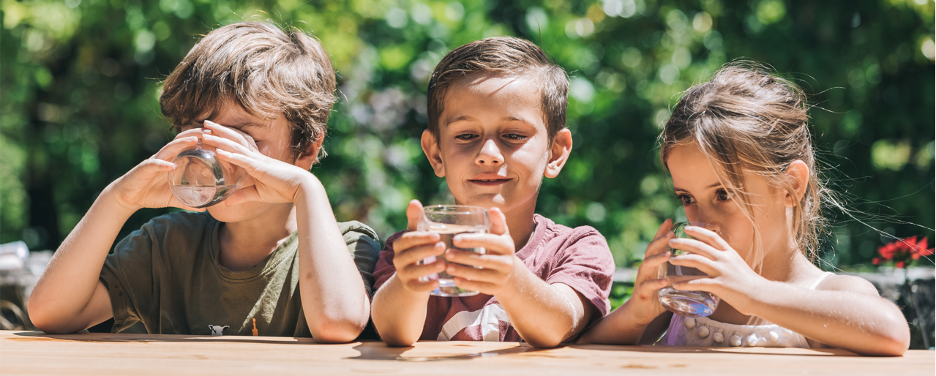
At the Water Services Authority - Taumata Arowai we are committed to ensuring everyone in Aotearoa New Zealand has access to safe and reliable drinking water every day.
We play a critical role regulating drinking water suppliers to ensure they meet quality standards.
We also play a role improving the environmental performance of wastewater and stormwater networks, including setting performance measures, standards and reporting on how network operators are performing.
To learn more about Taumata Arowai visit our website.
Have Your Say
Your feedback will help to inform our decisions on the content of the documents we are consulting on.
For further information or questions about our consultations please email korero@taumataarowai.govt.nz
Proposed documents for consultation
-
Proposed changes to New Zealand’s Drinking Water Quality Assurance Rules for supplies that serve 500 or fewer people
At Water Services Authority – Taumata Arowai, we’re committed to ensuring that safe water obligations for small drinking water suppliers are cost-effective and appropriate to the supply size and level of risk. We’re undertaking a review of the Drinking Water Quality Assurance Rules (the Rules) in two parts. First, we’re seeking your feedback on proposed changes to Rules for supplies that serve 500 or fewer people. Second, we plan to consult on proposed changes to...
Closed 18 October 2024
-
Second Tranche of Drinking Water and Wastewater Network Environmental Performance Measures
The Water Services Act 2021 includes requirements to monitor and report on the environmental performance of certain drinking water, wastewater, and stormwater suppliers and their operators. These requirements are designed to provide greater transparency about the performance of networks, the impacts they have on the environment and public health, and to contribute to the continuous and progressive improvement of the quality of water services. This discussion document provides...
Closed 9 December 2022
-
Notifiable risks or hazards
Taumata Arowai is the water services regulator for Aotearoa New Zealand, working to ensure everyone has access to a safe and reliable supply of drinking water every day. To help realise this goal, it is important that Taumata Arowai is aware of issues that could affect the safety of drinking water being supplied to consumers, its sufficiency, its compliance and its acceptability in terms of its aesthetic properties (like taste, clarity and odour). Accordingly, the Water Services Act 2021...
Closed 7 December 2022
-
Drinking Water Quality Assurance Rules
The Drinking Water Quality Assurance Rules (the Rules) set out the requirements a drinking water supplier must comply with to help ensure the drinking water they provide is safe. The Rules are ‘compliance rules’ for the purposes of the Water Services Act 2021. To address the large variations across different kinds of drinking water supplies, the Rules are categorised into different drinking water supply types. These have different modules and complexities assigned to them. ...
Closed 28 March 2022
-
Drinking Water Standards
The proposed Drinking Water Standards (the Standards) will replace the existing Drinking-water Standards for New Zealand (revised 2018). They set limits for contaminants and other characteristics of drinking water. The Standards apply to all drinking water supplies regardless of the nature of the source water and the number of people served by the supply. Detailed Summary Taumata Arowai is conducting a public consultation on drinking water standards for Aotearoa;...
Closed 28 March 2022
-
Drinking Water Acceptable Solution for Roof Water Supplies
This Acceptable Solution can be used to demonstrate that certain roof water supplies comply with the requirements of the Water Services Act 2021. This Acceptable Solution may only be used where a networked community supply is not available to the buildings that will be supplied by the roof water supply. It is estimated there are between be 10,000 – 30,000 roof water supplies in Aotearoa, including many marae. Detailed Summary Taumata Arowai is running a public consultation on...
Closed 28 March 2022
-
Drinking Water Acceptable Solution for Spring and Bore Drinking Water Supplies
A number of marae, papakāinga, small communities, and camping grounds take drinking water from springs and bores and reticulate the drinking water to multiple properties. It is not currently known exactly how many of these supplies exist in New Zealand. This Acceptable Solution is designed for community water supplies where good quality spring or bore water is supplied to multiple dwellings and buildings. Detailed Summary Taumata Arowai is conducting a public consultation on...
Closed 28 March 2022
-
Drinking Water Acceptable Solution for Rural Agricultural Water Supplies
Rural agricultural drinking water supplies primarily provide stock water or irrigation water and at least 65% of the total supply must be for this purpose. These supplies can also provide drinking water to houses connected to the stock water or irrigation supply, generally to a storage tank on the consumer’s property. It is generally not economic to treat all water in a rural agricultural water supply at a centralised treatment plant. This Acceptable Solution provides a way of ensuring...
Closed 28 March 2022
-
Drinking Water Aesthetic Values
The aesthetic values (properties) of drinking water that affect its acceptability to consumers, including its taste, odour, appearance and in some instances feel. Consumers will often be more aware of these values than the health-related limits that influence drinking water’s safety. Water is considered acceptable when its aesthetic values are not objectionable to most consumers. Detailed Summary Taumata Arowai is running a public consultation on Aesthetic Values for Drinking...
Closed 28 March 2022
-
Drinking Water Network Environmental Performance
The Water Services Act 2021 introduces new requirements to monitor and report on the environmental performance of certain drinking water, wastewater, and stormwater suppliers and their operators. These requirements are designed to provide greater transparency about the performance of networks, the impacts they have on the environment and public health, and to contribute to the continuous and progressive improvement of the quality of water services. ...
Closed 28 March 2022
